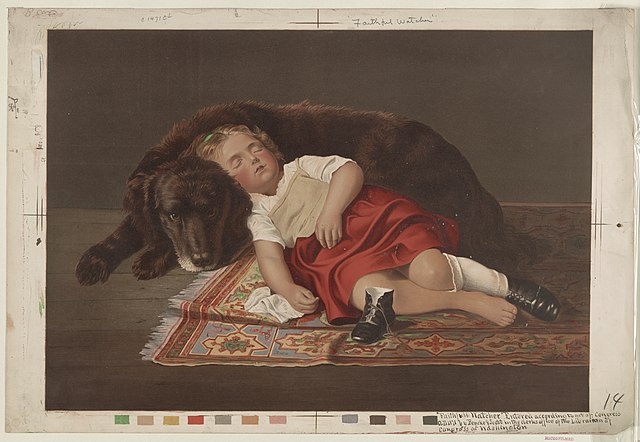
Thammasat University students are cordially invited to participate in a free Zoom celebration on Thursday, 12 August 2021 starting at 2pm Bangkok time.
Hosted by The Sleep Laboratory at the Melbourne School of Psychological Sciences of the University of Melbourne, Australia, the webinar commemorates the rededication of the Sleep Laboratory in honor of Emeritus Professor John Trinder, an eminent researcher in sleep studies.
The Thammasat University Library collection includes several books about the science of sleep.
For further information or with any questions, kindly write to this email address:
engagement-psych@unimelb.edu.au
Students may register to participate at this link:
The event website notes,
Join us as we celebrate Professor Emeritus John Trinder’s remarkable career and achievements and commemorate the renaming of The Sleep Laboratory to the “John Trinder Sleep Laboratory”.
Professor Emeritus John Trinder established the Sleep Laboratory at the University of Melbourne in 1987 and directed it until his retirement in 2015. Professor Trinder’s research work has dramatically advanced the field of sleep medicine. The Sleep Laboratory, located at the Melbourne School of Psychological Sciences, conducts a variety of sleep-related research including the effects of poor sleep on mental health and cognition, as well as research to better understand the causes for sleep disorders such as obstructive sleep apnea.
Professor Trinder’s achievements include publishing more than 200 scholarly articles, training more than 40 PhD/Masters students and over 100 honours students and obtaining continuous funding from the NHMRC and the ARC for 20 years prior to his retirement. In honouring Professor Trinder for his considerable contributions to the School, the Sleep Laboratory will be renamed the “John Trinder Sleep Laboratory”.
Presenters
Professor Rob Hester
Head of School, Melbourne School of Psychological Sciences
Professor Rob Hester is a cognitive neuroscientist and has held academic positions in the School supporting Research/Research Training, Teaching and Learning portfolios, and was previously the Associate Head of School…
Professor Amy Jordan
Professor Amy Jordan is the director of the Sleep Laboratory and Deputy Head of School at the Melbourne School of Psychological Sciences (MSPS). She is also an Honorary Fellow at the Institute for Breathing and Sleep, Austin Health…
Her research interests span all aspects of “sleep”. However, the vast majority of her research has investigated the causes and consequences of Obstructive Sleep Apnea. Her current projects include several investigating the neural control of upper airway muscles, the relationship between sleep and mental health in airline cabin crew, as well as the role of sleep in the development of Post-Traumatic Stress Disorder.
David White
Professor of Medicine, Harvard Medical School
Dr. David White M.D has held a number of positions at various universities over his career and is currently a Professor of Medicine, Part Time, at the Harvard Medical School and is a senior scientist at Apnimed. Some of his major accomplishments include being President of the American Academy of Sleep Medicine, Chairing the Task Force to write the research plan addressing sleep and its disorders for the National Institutes of Health, and being the Editor-in-Chief of the Journal SLEEP. His principle research interest has been the pathophysiology of disorders of breathing during sleep about which he has published over 275 original papers
Professor Ian Colrain
Honorary, Melbourne School of Psychological Sciences and President of SRI Biosciences
Dr. Colrain is the President of SRI Biosciences, a division of SRI International, one of the world’s leading research and technology commercialization entities. Dr. Colrain is also a member of senior executive staff for SRI International and contributes to the strategic planning and operational control of the entire institute.
Over his career Dr. Colrain has published over 350 articles, chapters and abstracts and has two awarded patents. He holds a Top Secret clearance from the United States Government and spent over a decade as a Psychologist in the Australian Army Reserve…
Emeritus Professor Doug McEvoy
Academic Status & Web Supervisor, College of Medicine and Public Health
Emeritus Professor Doug McEvoy is the immediate past Director of the Adelaide Institute for Sleep Health at Flinders University in South Australia. He was an NHMRC Practitioner Fellow between 2005 and 2020 and is Senior Principal Research Fellow at the South Australian Health and Medical Research Institute…

Thailand and sleep
Last year, The Journal of Clinical Sleep Medicine, a monthly peer-reviewed medical journal published by the American Academy of Sleep Medicine, featured an article on Sleep medicine in Thailand by Associate Professor Naricha Chirakalwasan, MD, Bumrungrad International Hospital and colleagues.
The article noted:
Obstructive sleep apnea (OSA) is one of the most common sleep disorders studied in Thailand. The first epidemiological study was conducted in 4,680 participants in Bangkok by a face-to-face interview using 49-question sleep inventory. The study reported 4% of the total sampled population complained of habitual snoring (> 3 nights/week) and excessive daytime sleepiness (> 3 days/week) for at least 3 months (5.3% of men and 3.5% of women).6 Subsequently, prevalence of OSA in Thais was reported in 2011 using the data from office-based workers and people who came to contact with one of the university hospitals.7 Prevalence of OSA utilized criteria of apnea-hypopnea index (AHI) ≥ 5 events/h were 15.4% and 6.3% in men and women; respectively. Incorporating excessive daytime sleepiness symptoms into AHI, the prevalence of OSA in men and women were 4.8% and 1.9%; respectively. According to the recent reported global OSA prevalence, OSA prevalence in Thailand is comparable to that found in other countries.8
The Sleep Society of Thailand (SST) was established in 2009 by the group of Thai physicians who trained or studied in sleep medicine abroad. During the commencement of SST, the American Academy of Sleep Medicine provided SST with examination material for a sleep medicine specialist certification examination. Total of 10 physicians passed the examination and were certified as sleep medicine specialists for the first time in Thailand. Subsequently, SST developed its own examination material and had been holding sleep medicine certification examination annually. Physicians who met the prerequisite criteria in terms of number of polysomnography interpretation, number of encountered sleep disorder consultation, or demonstrable completion of training in accredited sleep medicine fellowship internationally are eligible for the examination. To date, total of 41 physicians were certified by SST as sleep medicine specialist (26 internists, 8 otolaryngologists, 6 pediatricians, and 1 psychiatrist).
Chulalongkorn University established the first international sleep medicine fellowship in 2011. To date, total of 10 international sleep medicine specialists were trained in this program. In addition, a 1-year sleep medicine fellowship also has been offered at Siriraj hospital. Furthermore, a master of science degree in sleep medicine has also been available at Ramathibodi hospital and Siriraj hospital.9 However, sleep medicine was not recognized under the Medical Council of Thailand as a separate medical subspecialty. There is no national medical practice regulation at the moment for sleep medicine related procedures such as interpretation of polysomnography, Multiple Sleep Latency Tests, or prescribing sleep medicine related medical devices such as continuous positive airway pressure (CPAP). Practically, any physicians holding active medical practice license in Thailand can conduct aforementioned sleep related procedures.
A major turn in sleep medicine education in Thailand occurred in 2018, when SST approached the Medical Council of Thailand to establish sleep medicine specialty as a unique entity and to propose formal sleep medicine fellowship training. Ultimately, the Medical Council of Thailand declared sleep medicine as a formal medical specialty. Furthermore, 2-year fellowship training in sleep medicine for Diplomate of the Thai Subspecialty Board of Sleep Medicine was granted under Royal Colleges of Medicine, Psychiatry, Pediatrics, and Otolaryngology. To date, a total of 26, 8, 12, and 32 qualified physicians received Thai subspecialty board of sleep medicine under Royal Colleges of Medicine, Psychiatry, Pediatrics, and Otolaryngology; respectively based on their demonstrable ongoing engagement in sleep medicine or completion of formal sleep medicine training abroad…
Related research on sleep medicine and Thailand has also appeared in the Journal of Health Research in articles by other researchers published in 2016 and 2018.

(All images courtesy of Wikimedia Commons)
